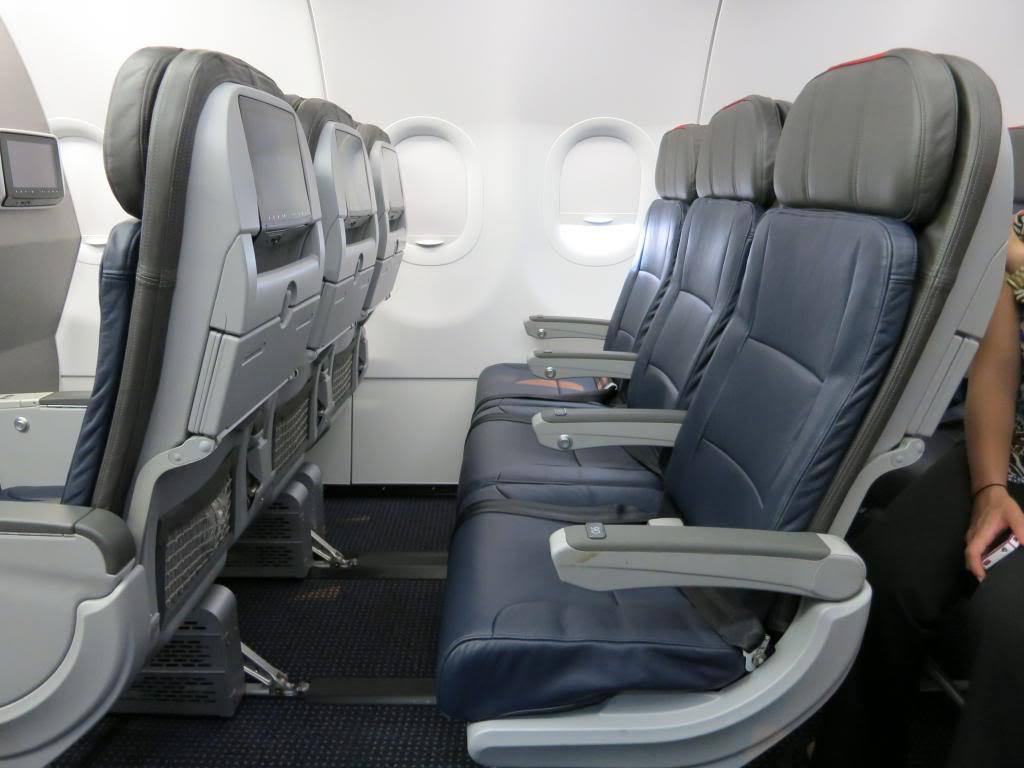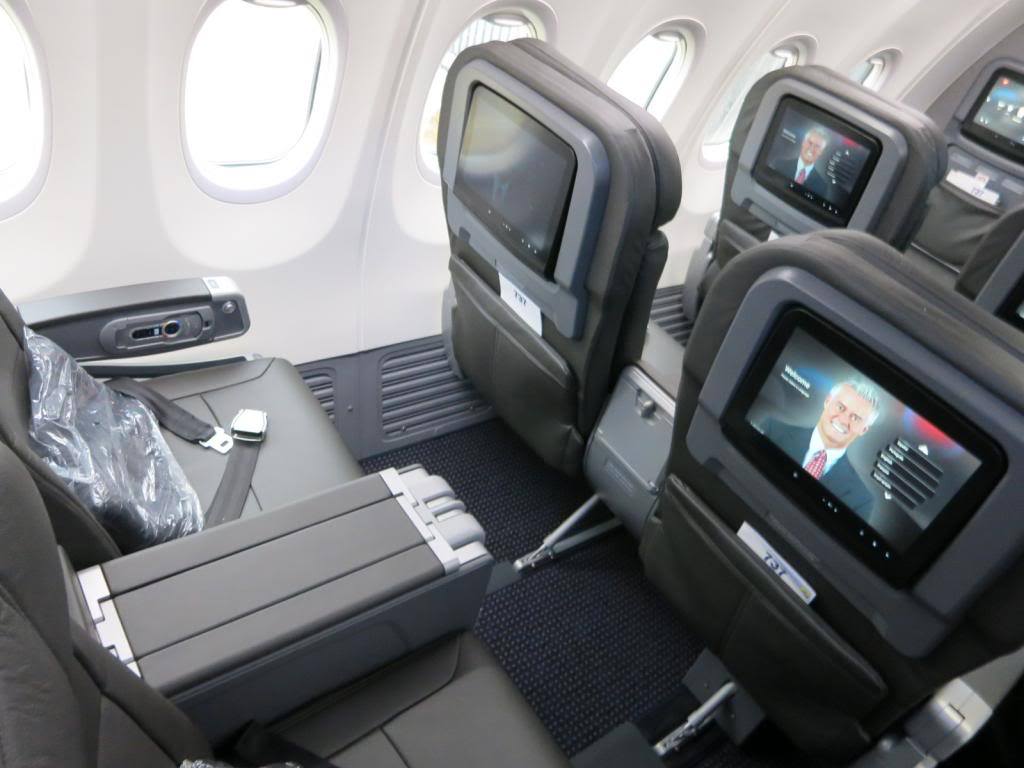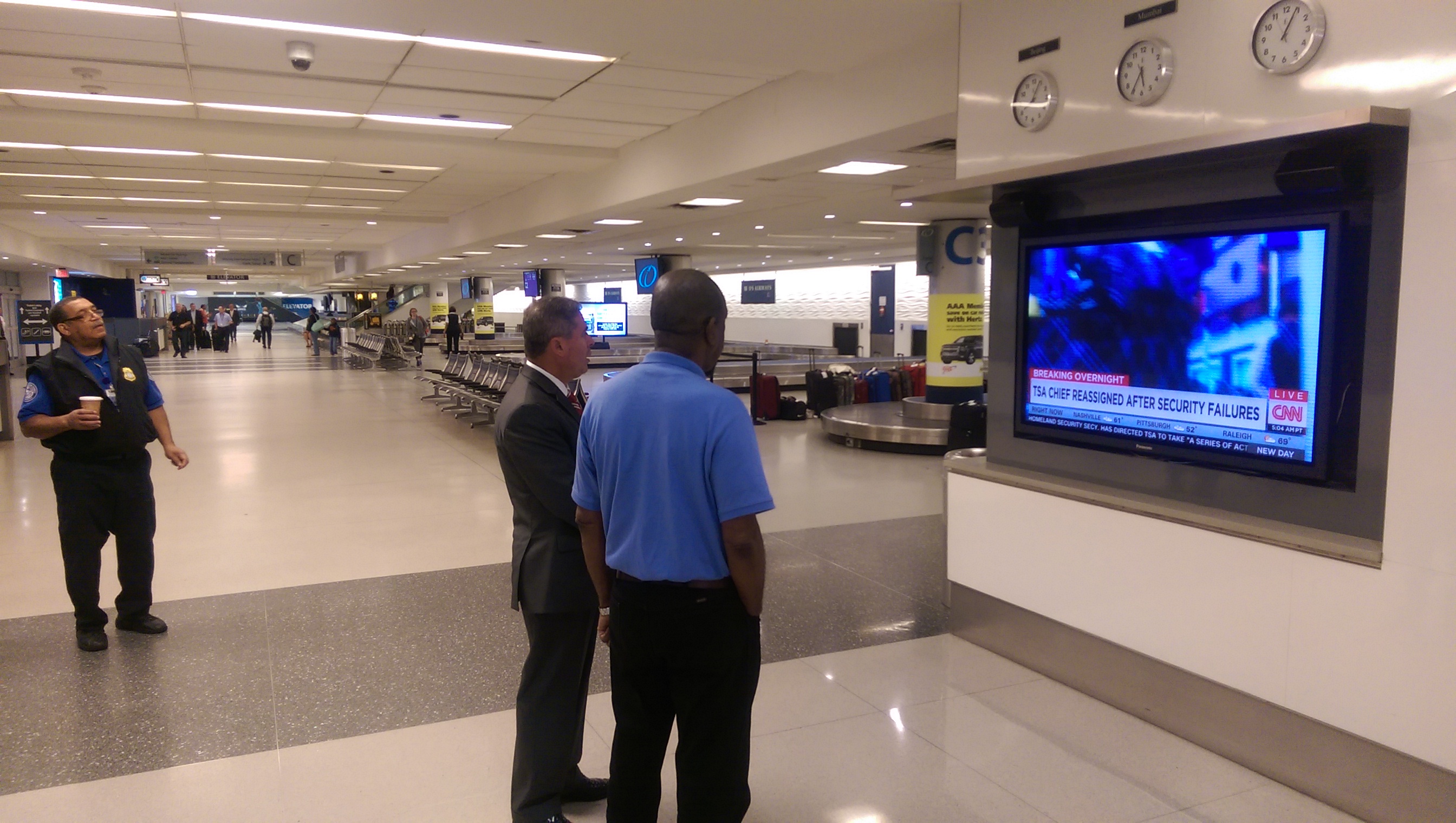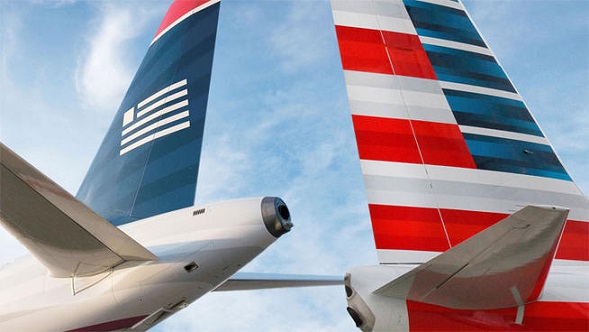My Facebook feed was littered with shares today of a piece titled “How the Left Ruined Air Travel” and with many such attempts to use the narratives of frustrated travelers to advance a political agenda, author Josh Gelernter doesn’t appear to know enough about the subject to make the case stick.
FDR Left Us a Legacy of High Prices — But Ted Kennedy Reversed It
For reasons untouched upon in the piece it’s certainly true that ‘big government’ gave us high ticket prices all the way through the late 1970s.
In the early days of US civil aviation the largest airline customer was the federal government in the form of the US Postal Service. The 1925 Kelly Act authorized the Postal Service to contract with private airlines to carry the mail. That led to airlines received most of their revenue carrying mail. Often priced to the customer by the piece regardless of weight, with the government charged for weight, airlines were known to mail bricks and other large objects to themselves in other cities to pump up their revenue.
The 1930 Air Mail Act changed how mail was priced and gave broad contracting powers to the Postmaster General. The Postmaster used this power to consolidate contracts under three major airlines, forcing many airlines out of business. This came to fruition out of a 1930 meeting that became known as the ‘Spoils Conference’.
The government had dictated which airlines would survive and prosper, and awarded contracts to airlines that hadn’t been the lowest bidder. When the story of what transpired finally came out, it was a scandal that led to the cancellation of contracts and to the Roosevelt administration enlisting the Air Force to carry mail. They weren’t equipped to do this.
Accidents and deaths followed the Air Force takeover of air mail, and contracts were finally returned to the private sector. None of the incumbent carriers were permitted to carry mail, so airlines changed their names. None of the executives involved earlier could run airlines obtaining postal contracts and so leadership was jettisoned from the airlines. United and Boeing were broken up into separate companies.
But Airline Deregulation was championed by Senator Ted Kennedy (and his counsel at the time was Stephen Bryer).
Airline deregulation is something of a misnomer because airlines remain one of the most heavily regulated industries. Virtually everything an airline does is subject to strict regulation. Everything about planes is heavily regulated by the FAA. Worker relations are governed by the Railway Labor Act. The Department of Transportation is granted broad regulatory powers over the airlines, rather than leaving such regulation to the Federal Trade Commission as with most industries. But it did drive down airfares.
And plenty of things have improved since deregulation in addition to making travel more affordable. Pre-deregulation, for instance, there was no such thing as ‘economy plus’ extra legroom seating.

American Airlines Main Cabin Extra
And premium cabin fares have dropped substantially, too, which is why Delta has gone from selling 10% of those seats to 57%.

American Airlines Domestic First Class
Republicans Gave Us the TSA
While security theater was a Clinton administration strategy reacting to the explosion of TWA flight 800, the federalization of airport security was a Bush administration reaction to 9/11.
So when the National Review piece concedes, “Obviously, the TSA is part of it, but only part” it’s indicting the Right and not the Left.

TSA Agents in Charlotte Watch News of the TSA’s Failure to Detect Weapons and Bombs, Instead of Searching for Weapons and Bombs (HT: Tocqueville)
Having a Majority of Seats in a Market is Not a Monopoly
The author seems not to know what a monopoly is.
Because the four major U.S. airlines — United, American, Delta and Southwest — have monopolies over particular markets. At 40 percent of America’s large airports, one of the big four controls an outright majority of the seats sold. At 93 percent of the large airports, a majority is controlled by two of the four combined. Which means their market shares are assured and there’s no need to compete with one another.
In fact, individual airlines held majority of service in individual cities prior to the most recent round of consolidation. Northwest controlled Minneapolis and Detroit (and Memphis). (The old joke at Northwest about the Upper Midwest was “It’s cold, it’s dark, no one wants to go there but it’s all ours!) Delta controlled Atlanta and Salt Lake City (and others). Their merger meant that Delta, now headed by the former CEO of Northwest, controls all of those cities but has relaxed its grip on Memphis and Cincinnati.
Combining American and US Airways meant that in many cities where the presence of each carrier was negligible each developed a large enough presence to become a serious competitor to the incumbent dominant carrier.

And in any case, four major US airlines is not a monopoly. Most routes genuinely offer a choice of carrier on a one-stop basis. There’s no ‘monopoly’ per se. And airfares have been falling for the past year, even as American and US Airways integrated to form the world’s largest airline. That was a merger, incidentally, that the Obama administration opposed. And the Delta-Northwest merger occurred during the Bush administration.
Slot Controls And Lack of Airports Aren’t the Problem, Either
Supposedly the reason for lack of competition is lack of takeoff and landing slots, and those are limited because there’s not enough airports or big enough airports. That’s silly.
Because of airport “slots.” That is, rights for an airline to fly planes in and out of an airport. Big airports are “slot-limited” to reduce congestion; slot distribution tends to be based (according to a report in the Washington Post) on “historic flight levels,” which means the big airlines get to continue being big airlines, by being given most of the slots. Up-for-grabs slots are very valuable and expensive; as a rule, the four major airlines are the airlines that are in a position to buy them.
First, very few airports in the US are slot restricted. New York LaGuardia, New York JFK, Newark, Chicago O’Hare, and Washington National have limitations on operations placed on them by the Department of Transportation though legal slot restrictions at two of the New York airports and O’Hare formally expired.
There are airports where gates are fully leased and there’s no room for expansion. For instance, Dallas Love Field has legal restrictions on the number of gates allowed at the airport (which actually required the airport to decommission gates). That’s why there’s more demand than gates and it’s been thrown to the courts. But Love Field is unique. More common is St. Louis where portions of terminals have been shuttered because of lack of airline demand. Worldwide airports have been successfully privatized, see for instance in Australia and many in Europe, though outside of Branson, Missouri that’s not common in the U.S. But it wouldn’t solve the major issue.
Air traffic control is a huge limiting factor, especially in the Northeast and around major hubs and population centers. That’s government controlled, and there is a proposal before Congress to spin off the function into a non-profit entity. That could help, following a model that’s been used successfully worldwide including Canada (which adopted it under a government farther left than recent US ones). But “the Left” isn’t the opposition driver. If anything it’s Delta.
Competition is Limited Because of Cronyism, Not the Left
Here’s the conclusion that gets the solution wrong:
Air travel is bad because there’s no competition, because there are too few airlines, because there are too few airports, because the feds and city governments make big construction projects nigh-on impossible. So how do we fix air travel? We have either got to start building airports far enough outside of metro areas that labor-environmentalism is a non-issue, or conservatives have to start winning mayorships.
Far away airports certainly won’t make travel better. “Conservative mayors” aren’t going to mean big close-in infrastructure projects. And lack of airport facilities isn’t the binding constraint in most cases standing in the way of competition.
To be sure, parallel runways too close together in San Francisco is a problem and if they could fix that problem there would be fewer delays.
But if you want more airline competition and to drive better service and low prices, you need to end corporate welfare. And that’s equally a Republican and a Democrat problem.
Lift the restrictions on foreign ownership of US airlines, and make it possible for Singapore Airlines and Ryanair to compete in U.S. markets. If you want competition and more airlines, legalize competition and more airlines.


Thanks for the great read, though I would have titled it “Democrats or Republicans? They both suck”.
Bang on target! Great article thank you
The right is nominating Cruz and trump. There is no point discussing anything with people that crazy.
Like for al qaida or isis you just do the political equivalent of carpet bombing of the crazy people.
Drop dead Ted
Thanks for the thorough analysis. Sadly these days everything seems to get politicized, when often the fault lies not with the left or right, exactly, but rather with cronyism and the capture of our political system by big money.
Virgin America proved that you can start a new airline in the US these days and that it will absorb a lot more money than you expected. The barrier to entry is high but surmountable.
Thanks for another great article.
Nice analysis of this. I think the thing I worry about lately is the race to the bottom. People like Bernie Sanders would get rid of business class and of course first class because it’s not fair for such a small percentage of the passengers on a jet to have the best seats. People like Trump would argue that he doesn’t care since he has his own plane and it’s better than anyone else’s. Hillary would tell you all to go eat cake but to make sure you pay the taxes on it. I could go on but you can see my point I hope. You would think politicians that have to travel so much would get air travel problems but they don’t because they don’t typically pay the bill and live in a different world.
maybe when he says “left” he’s not referring to democrats…but more of the ideology, the draconian regulations and cronyism that BIG GOVERNMENT always provides to their friends.
and yeah, Republicans and Democrats both suck
Meh – the problem with aviation came from both the left wing and the right wing. Never would have happened if we had listened to Jack Northrop and built aviation on the model of the X-216H which needed only one wing.
Good response Gary.
@DaninMCI writes, “People like Bernie Sanders would get rid of business class and of course first class because it’s not fair for such a small percentage of the passengers on a jet to have the best seats.”
Remember that both Air Koryo and Cubana de Aviacion have business class… 😉
Thanks for your well-reasoned response. That article was one of the most absurd pieces of partisan nonsense I’ve ever read (and I’m no lefty by any means).
Safety regulations aside, the airline industry has largely been left to do whatever it likes. The end result – corporate bailouts, mega-mergers, and now record profits, hardly things the left likes to see. What the left does like is the drop in airfares, making air travel most accessible to the masses.
People love to complain about air travel, especially those fondly mis-remembering the “Golden Age” before deregulation. Guess what? That style of travel still exists if you’re willing to pay the same inflation-adjusted price as you did in 1970, except now it’s called business class. The problem is people want business class service at LCC prices, and that’s never going to happen.
Buying a $99 transcontinental fare and complaining about the lack of legroom and service is like buying a dozen pairs of cheap Chinese socks at Walmart for $4 and then being surprised when the quality is shit. You get what you pay for.
Makes one wonder how a Romney-like attack on business taxes would have altered things.
Gary, I think many Australians would disagree that privatizing their airports has been a success. Certainly it’s turned a nice profit for the airport owners, but it sure hasn’t improved air travel for the public. Just look at the ongoing difficulties trying to build a second Sydney airport.
@mark reinoso: If there’s one thing history has taught us, it’s that small governments can be just as full of waste, cronyism, and corruption as big ones. The problem isn’t the size of government, it’s the people we choose to run them (i.e. the politicians). As you say, both the Republicans and Democrats suck!
Good analysis, Gary, capped by an even better conclusion: We need more competition, ranging from high-quality to low-cost carriers, and that competition could most likely come from abroad.
Air travel wouldn’t be possible without both the left wing and the right wing
First off, Gary, great response to this article. But we shouldn’t confuse “The Left” with Democrats (as I think the author of that article did, way too many times). Being on the left or the right isn’t synonymous with Republican or Democrat. The Left, or liberal/progressive ideas, would favor big government and I think that’s what the National Review author was trying to get at (though it was awfully put), that big government, and big regulations is what is driving up airline costs.
But as many have echoed in this comment section Republican or Democrat, they are both awful and together through cronyism (as you pointed out) is what is “screwing up” air travel.
“However [political parties] may now and then answer popular ends, they are likely in the course of time and things, to become potent engines, by which cunning, ambitious, and unprincipled men will be enabled to subvert the power of the people and to usurp for themselves the reins of government, destroying afterwards the very engines which have lifted them to unjust dominion.” — George Washington.
Gary – to avoid a contempt citation, better correct Judge Breyer’s name…
@Joseph – well put!
I fly a lot cheaper today, adjusted for inflation, than when I first flew in 1963. I’m continually amazed at how inexpensively I can fly anywhere in the world I want do go.
This is a useful reminder that though Republicans sometimes bill themselves as the party of the free market, the more accurate term is “pro-business,” and by that they mean pro-incumbent businesses, or more accurately pro-donor businesses. In this respect Democrats are more or less the same. Free-market competition does not have a constituency.
@Arcanum I agree….however small governments dont have control over every aspect of our life like big government does. Small government may be corrupt, but it doesn’t have the resources to spy on you, tax you to death, wage illegal wars, assassinate leaders, reward lobbyists and generally make our life miserable…..thats reserved for big government.
Government is coercion, period. The less it can coerce you to do, the better.